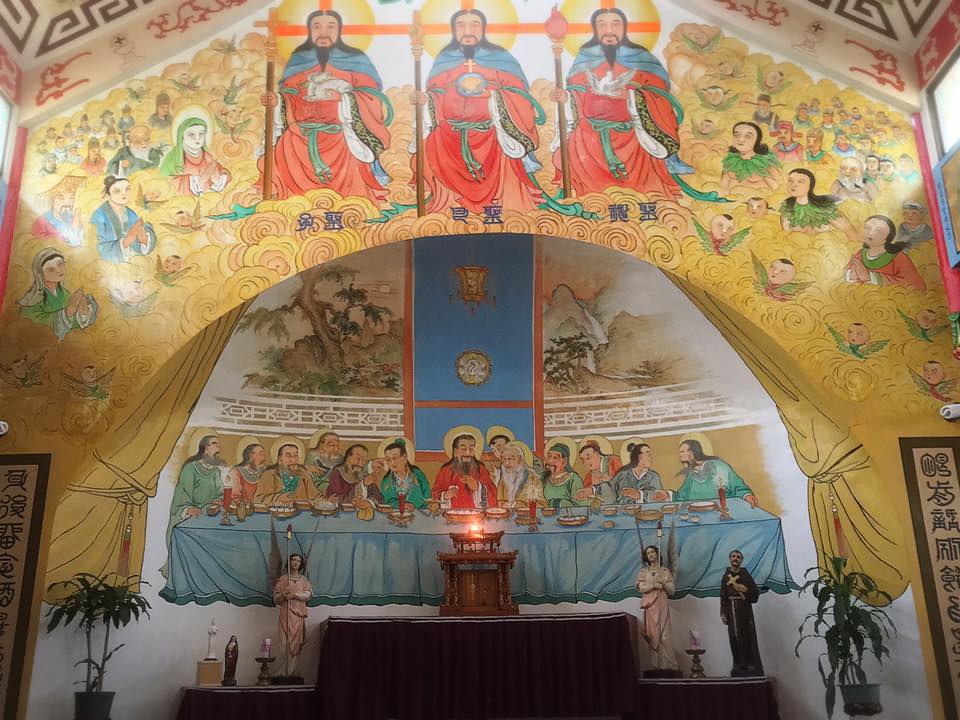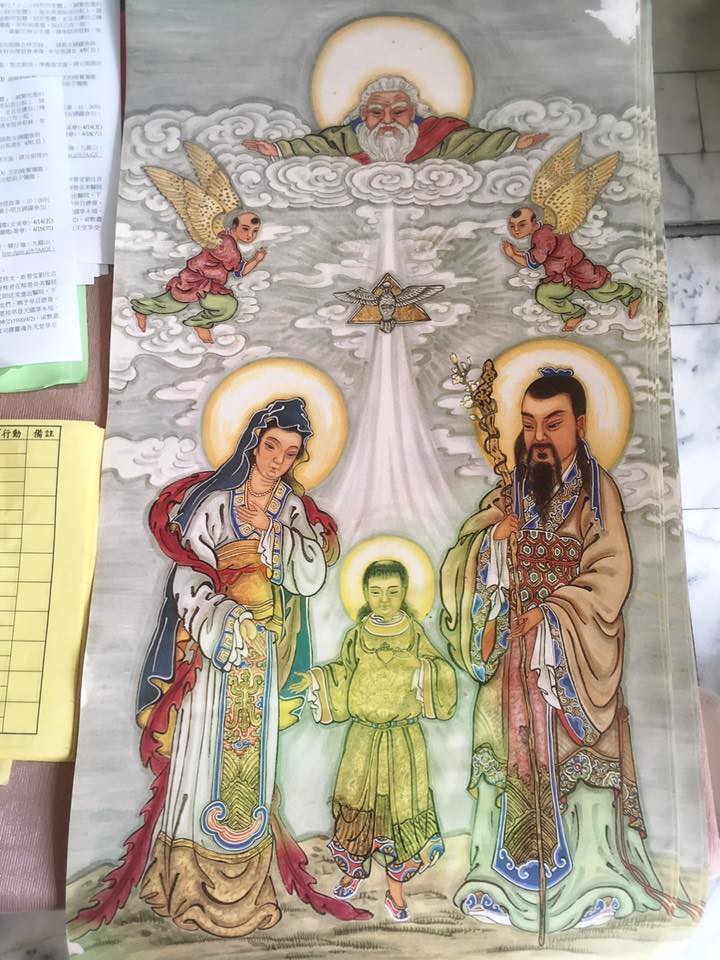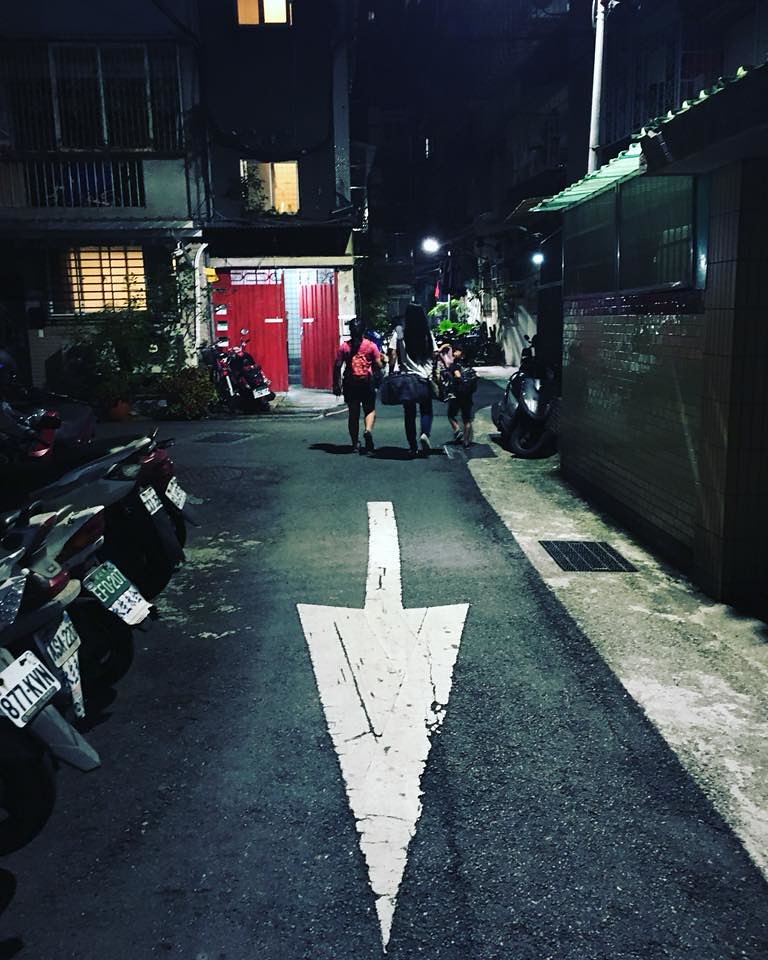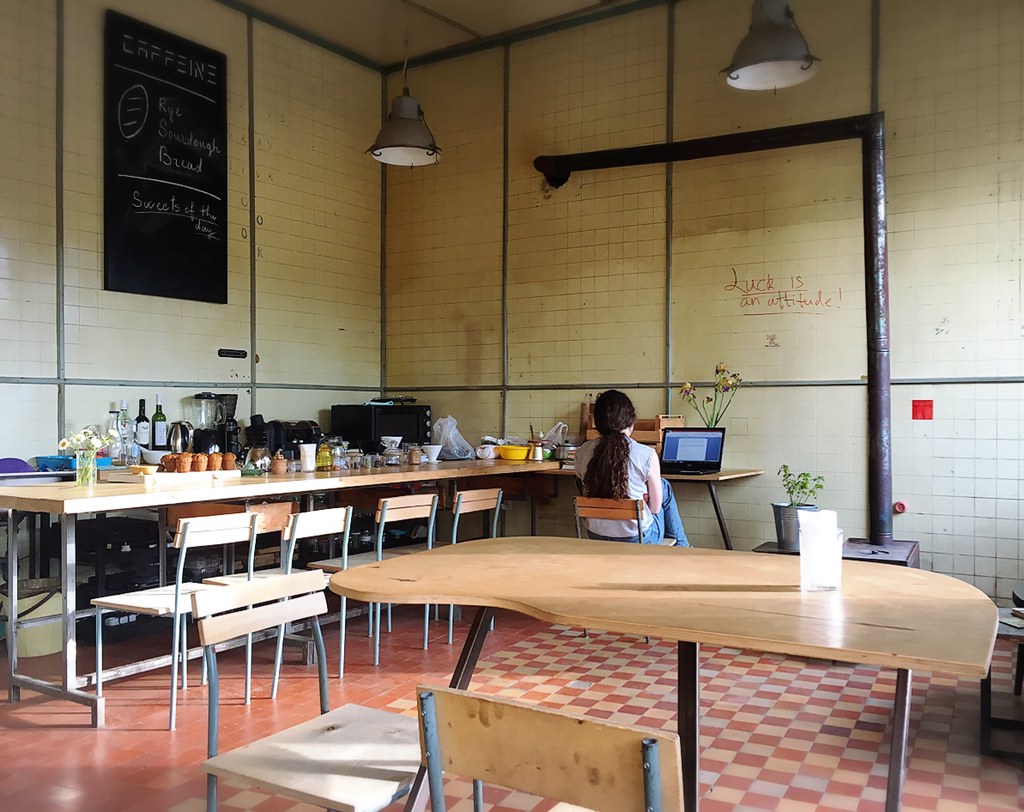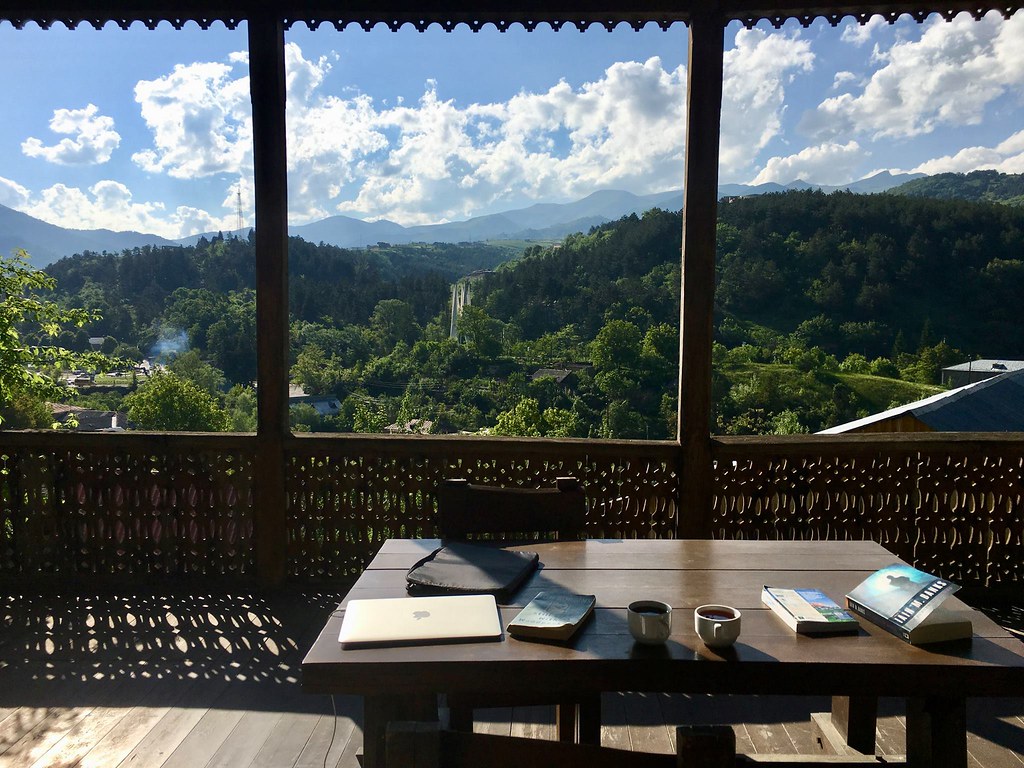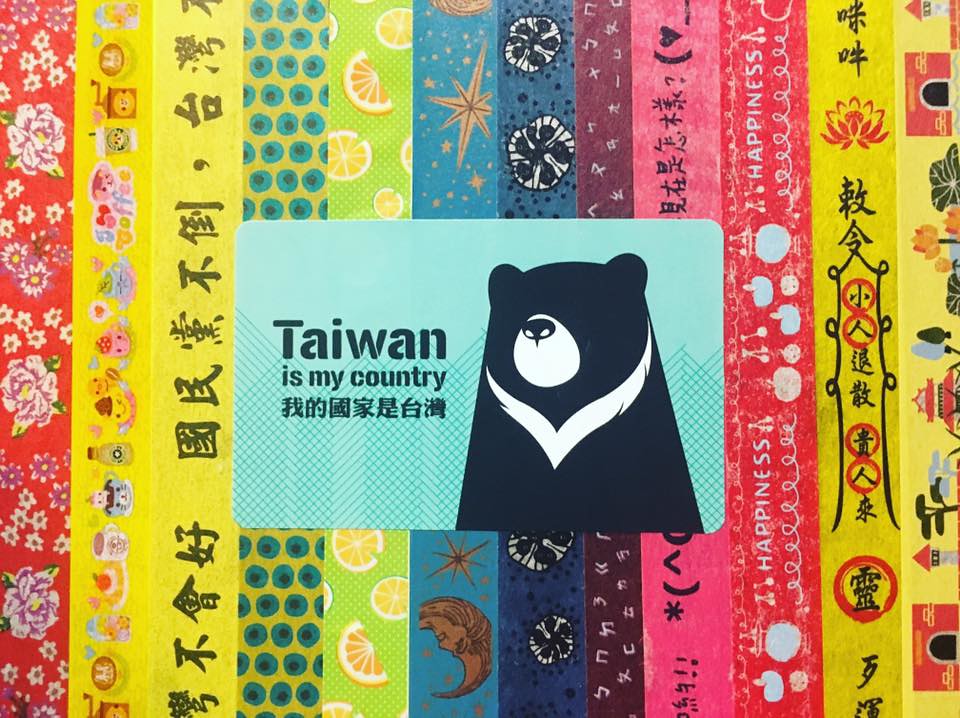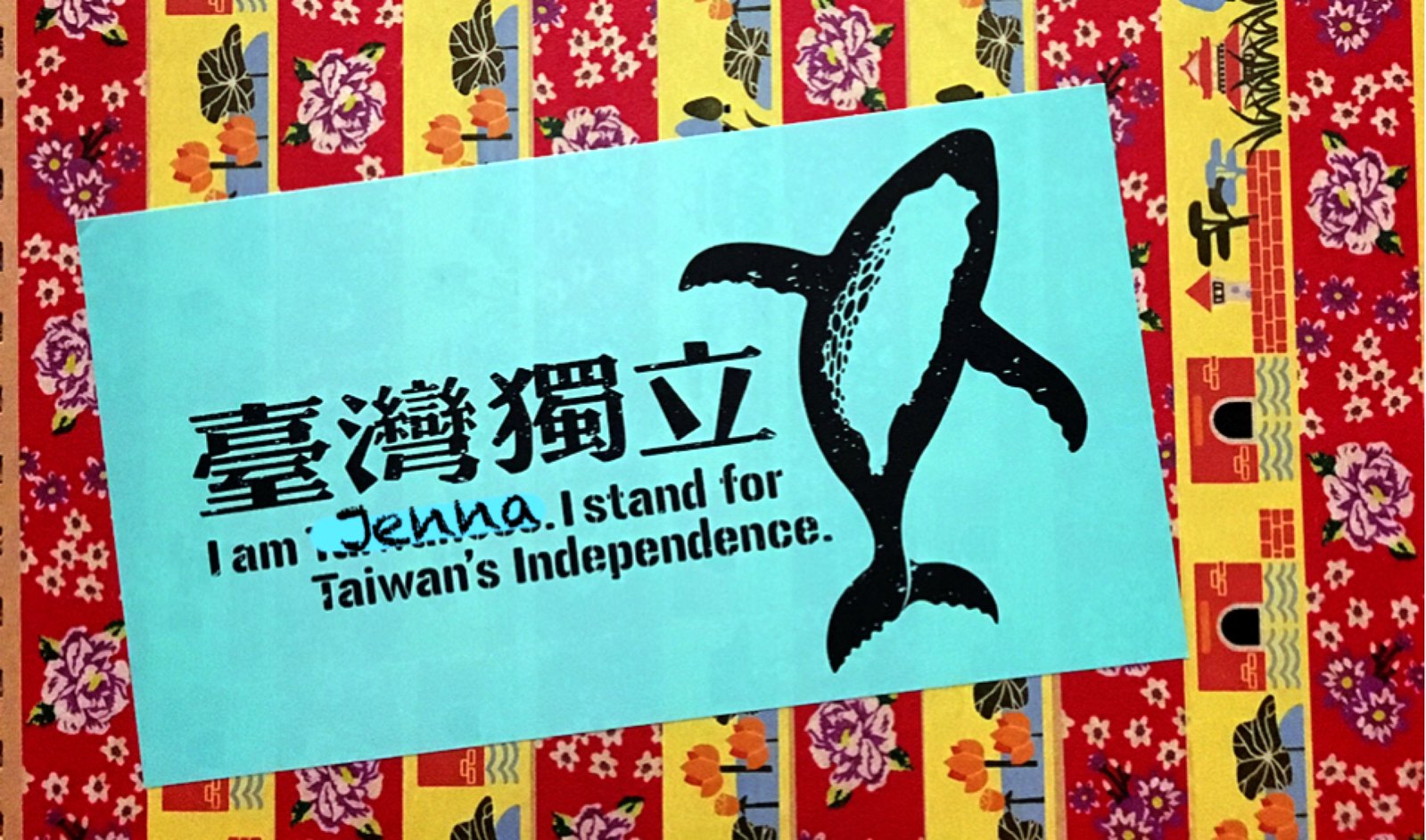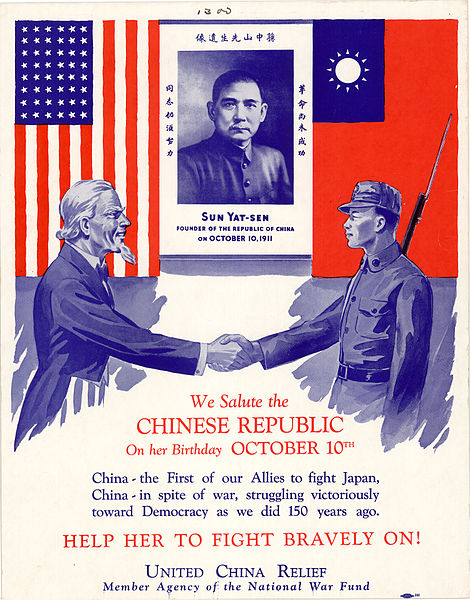Years ago, before I married, I went out on a date. I didn't know the guy very well, but felt relatively safe meeting him in public. As I often did, I planned a later meet-up with friends so there'd be a clear end-time to the date, no matter how well we got along.
Conversation flowed, there was maybe a small spark - but I hadn't liked the somewhat insistent way he'd asked for the date (yet was too young to know that really ought to mean an immediate rejection). Despite myself, I kind of liked him and thought I'd see him again, even though I knew straightaway our life goals were not compatible (I was going to be returning to Asia at some point in the middle future; he was Asian, but had no interest in this.)
I was young and stupid enough to think it would be safe to take him up on the offer to drive me to my meet-up with friends rather than taking the Metro and being a little late.
He drove a little too fast through DC. I was about to say something when he started asking me which streets we were passing and where he should stop, and I couldn't answer him because he was going so fast I couldn't read the street signs. I said as much and he snapped at me: I don't remember what he said, because I was so taken aback with how suddenly his personality had turned, and how inappropriate it was to snap at someone for that reason. He asked me again which street we'd passed, I said again that I didn't know because he was driving too fast for me to read. He sped up and snapped at me again for 'telling him how to drive', at which point I finally found my voice again, and said "stop here", even though we weren't there yet.
He didn't. He went even faster. I said, 'if you don't stop now I'm getting out at the next red light'. I almost added '...and calling the cops', though I knew it wouldn't have done any good. He came to an abrupt halt and waved me out of the car without a word.
I was still several blocks from my destination, but I felt like my life depended on my not being in that car anymore. Later he sent me a text message calling me a 'psycho bitch', and of course I never contacted or saw him again.
It wouldn't be the last time I was attacked for criticizing, disagreeing or rejecting a man, however. Not long after that I met a guy at a bar. He was visiting from a city a few hours away, but after a few effervescent chat sessions, he said he'd be back in town one weekend. Two days before, I was about to buy us tickets to something and told him so, when he said in fact he'd decided he wasn't coming, because he should attend a job fair in his own city. When I decided I just didn't want to deal with that kind of distance dating - the kind where you don't even know the person well and never know if travel plans will be scuppered at the last minute - I said as much, that it wasn't about him, and maybe the next time one of us happened to be in the other's city we could meet as friends but we would not be dating.
Cue a long tirade about how I was a stupid fat slut psycho bitch (oh, there's those words again! I know this song!) who obviously has serious mental issues and will always be alone because I'm such a slutty fat bitch psycho (I guess his vocabulary wasn't as impressive as I was looking for in a partner anyway). Blah blah blah, bitch slut psycho fat, yadda yadda, mental problems slutty bitch fat psycho, fat mental psycho problems bitch...you know, like magnetic poetry for assholes.
I wonder if men have figured out that these words literally do not mean anything to women anymore, because their illocutionary force is merely men wanting us to know that we should never disagree, criticize or reject them for any reason. "Fat" doesn't mean "a doctor would say you are overweight". "Psycho" doesn't mean "I am genuinely concerned about your mental health". "Bitch" doesn't mean anything at all. They all mean "you criticized me and I don't like that waah."
That second guy was nothing: just words on a screen. I didn't even read most of them. The first one, though? He could have refused to stop the car. He could have grabbed my phone if I'd tried to call 911. He could have killed me. He'd probably be infuriated to hear me say that, but from my perspective, he could have.
What's the difference between him and a guy who actually kills a woman for rejecting him?
Not as much as you'd like to think.
And what turns the man who is just words on a screen into the man who won't let a woman out of his speeding car? Not a lot.
What turns other exes (not just dates) of mine, who probably wouldn't even admit their sexism was a part of what broke us up, from casually sexist remarks into the kind of guy who does either of those things? Again, not much.
What's the difference between him and a guy who actually kills a woman for rejecting him?
Not as much as you'd like to think.
And what turns the man who is just words on a screen into the man who won't let a woman out of his speeding car? Not a lot.
What turns other exes (not just dates) of mine, who probably wouldn't even admit their sexism was a part of what broke us up, from casually sexist remarks into the kind of guy who does either of those things? Again, not much.
So, when I read about a wave of murders in Taiwan by men against women (more now than when this story came out) - many of which are over women rejecting men - I do agree wholeheartedly that the issue is the normalization of violence in Taiwanese (and frankly, every) society. However, I don't immediately jump to "it's the media" or even that there are dissectable, removable, examinable 'causes' or 'roots' in society that can be excised while keeping society otherwise intact.
It's a whole system of beliefs that starts with very mild behavior - men talking over women, interrupting them, attacking them for speaking out, trying to tear them down when they stand publicly for a privilege and sense of entitlement many men don't realize they have. This escalates to acting as though they have primary decision-making powers in a relationship and can "allow" a woman to do or not do something, to that same sentiment in a family (that a male family member can "allow" a female one to do something or not), to controlling/manipulative behavior, to violence right up to murder.
Violence, then, isn't normalized in Taiwanese - and every - society. The whole spectrum of this type of men's behavior is. In this way, I agree with New Bloom: it's intrinsic to toxic masculinity. Not all masculinity is toxic - my husband and male friends are plenty masculine without ever acting like this, and it is possible to raise boys into men who don't act this way - but it is normalized as male behavior for a vast swath, if not the majority, of men. The vast majority of men are not murderers, but this behavior is on one end of a spectrum with a very deadly other end. And it's so normal that women who want something better spend ages dating man after man who displays some of the milder behavior, often to simply compromise and stick with a guy who is only kind of mansplainy or kind of talks over her, or is nice to her but kind of an asshole to other women.
And every man who lets other men get away with it, or holds women to far higher standards than he does other men, is a part of the problem.
It's a whole system of beliefs that starts with very mild behavior - men talking over women, interrupting them, attacking them for speaking out, trying to tear them down when they stand publicly for a privilege and sense of entitlement many men don't realize they have. This escalates to acting as though they have primary decision-making powers in a relationship and can "allow" a woman to do or not do something, to that same sentiment in a family (that a male family member can "allow" a female one to do something or not), to controlling/manipulative behavior, to violence right up to murder.
Violence, then, isn't normalized in Taiwanese - and every - society. The whole spectrum of this type of men's behavior is. In this way, I agree with New Bloom: it's intrinsic to toxic masculinity. Not all masculinity is toxic - my husband and male friends are plenty masculine without ever acting like this, and it is possible to raise boys into men who don't act this way - but it is normalized as male behavior for a vast swath, if not the majority, of men. The vast majority of men are not murderers, but this behavior is on one end of a spectrum with a very deadly other end. And it's so normal that women who want something better spend ages dating man after man who displays some of the milder behavior, often to simply compromise and stick with a guy who is only kind of mansplainy or kind of talks over her, or is nice to her but kind of an asshole to other women.
And every man who lets other men get away with it, or holds women to far higher standards than he does other men, is a part of the problem.
(I am sure some dipclown is going to distort this argument into "mansplaining = murder!", but that is of course not what I mean. Let me make that clear now, although it won't matter to the trolls.)
What I'm trying to say is, the media in Taiwan is sexist, but their so-called 'reporting' and other commentary isn't what drives this. Sexism in society drives sexist media. It's the other way around. People watch because it's that combination of unacceptable yet already normalized - they don't normalize it because of what they watch.
And the 'wave' of murders...I'm not even sure it's really a wave. Men murdering women seems to have been a pretty regular thing in Taiwan in the past: the only difference I really see now is that people are talking about it more, and the stories get a little more airtime. (In this way it reminds me of India: everyone seems to think India is dangerous "now". But frankly, the crimes which make international news now don't seem to point to an actual uptick in violence against women, though I wouldn't be surprised, with the sweep of male entitlement that seems to always ride along with voting in a religious fundamentalist/nationalist government like the BJP - or Republicans in the US - if there actually was one. It just seems like problems that have always been there in India are finally getting more media time, and more discussion.)
Although Taiwanese media has many, many (many) problems and faults, and media coverage in Taiwan is without a doubt sexist, that society is discussing these types of murders more - and they are getting more media time - in Taiwan isn't one of them.
And we can't just 'find the root causes' of male-on-female violence in Taiwanese society and reflect on them, as though they can be destroyed as something separate from the whole. They are the whole, and trying to cut a surgical incision that takes out only the violence won't work.
That will still leave all the men who shut women out, who talk over them, who are so sensitive that they can neither bear to be criticized by a woman nor criticized in any way that implies, despite being otherwise good men, that they, too, carry some of these traits. It leaves all the ones who write mental fat psycho problems bitch slut slutty bitch problems fat slut bitch psycho mental (or whatever) to women who reject them, who won't let them out of cars, who follow them home and wait outside their apartments for them (as happened to a friend of mine in Taiwan).
In short, it requires upheaval of an entire social order.
I could go in here about patriarchal blah-blah Confucian society blah-blah Asian Beliefs blah-blah-whatever, but I won't. It wasn't that long ago that Western nations had just as much patriarchy, if not more so, and in many cases they haven't actually improved far beyond Taiwan. In my mother's own lifetime birth control was difficult to get in the US, let alone an abortion. Hell, a bank account in a woman's own name was hard to get, let alone a credit line! Marital rape was legal in the US until frighteningly recently. It wasn't that long ago that domestic violence was not necessarily grounds for divorce. Let's not pretend we are somehow perfect or untainted.
So I don't mean to dump only on Taiwan - this is a global problem, and the night I feared for my life was in the US (I have feared for my life on other occasions - notably, once, in India - but they weren't the result of a date gone wrong or my 'rejecting' a man). And I don't mean to say that all of Taiwanese culture must change to fit my Feminazi SJW Penis-Mutilating Manhater Agenda. A pretty awesome Taiwanese society - or any society - can be re-imagined and move forward on more egalitarian foundations.
But first, we have to admit to ourselves that the current foundations are rotten, and always have been.

